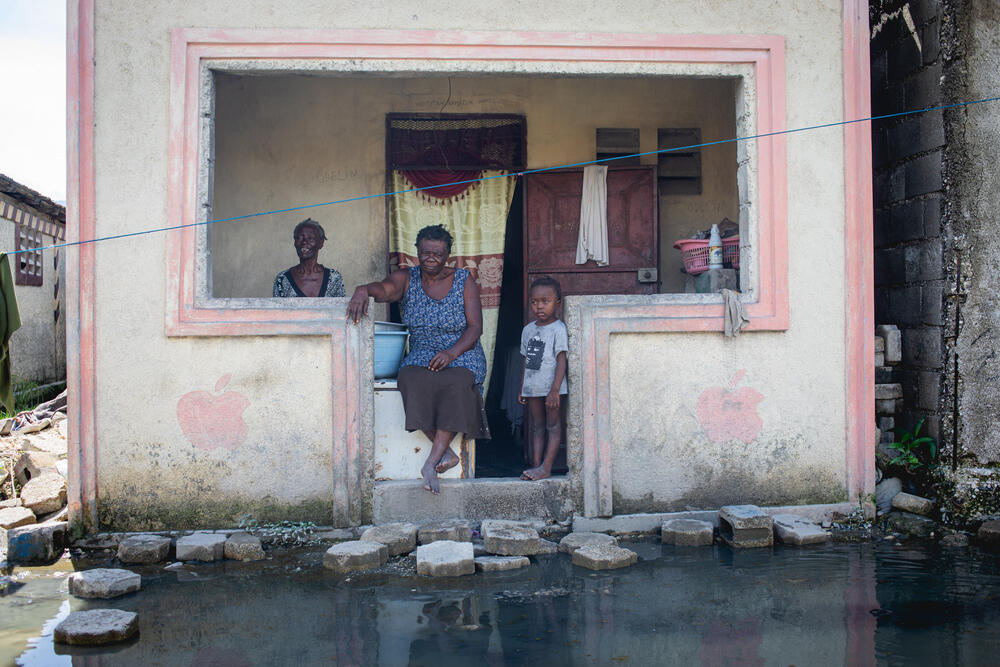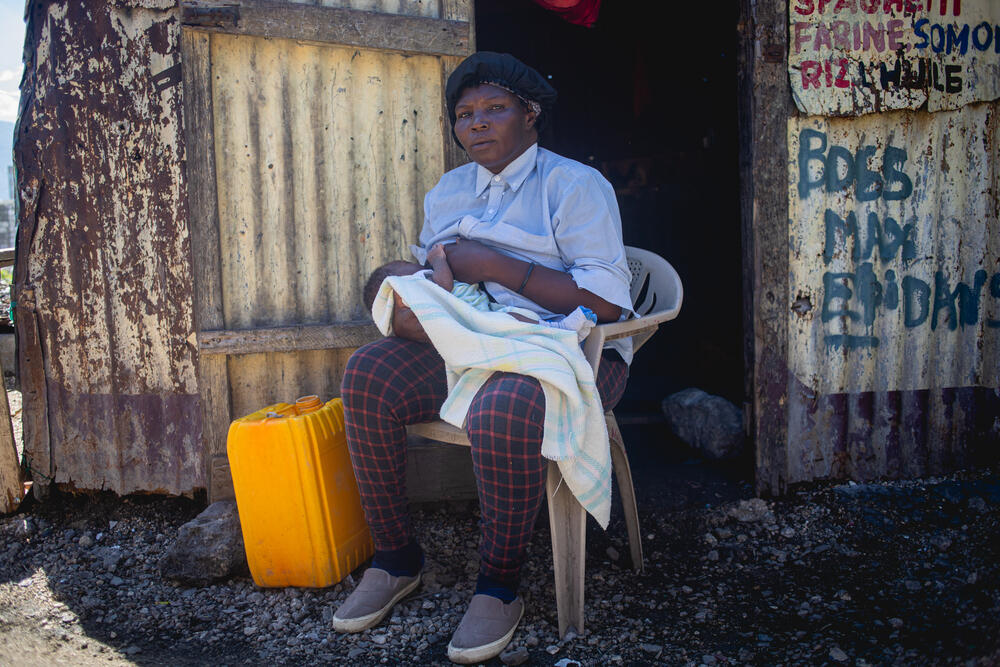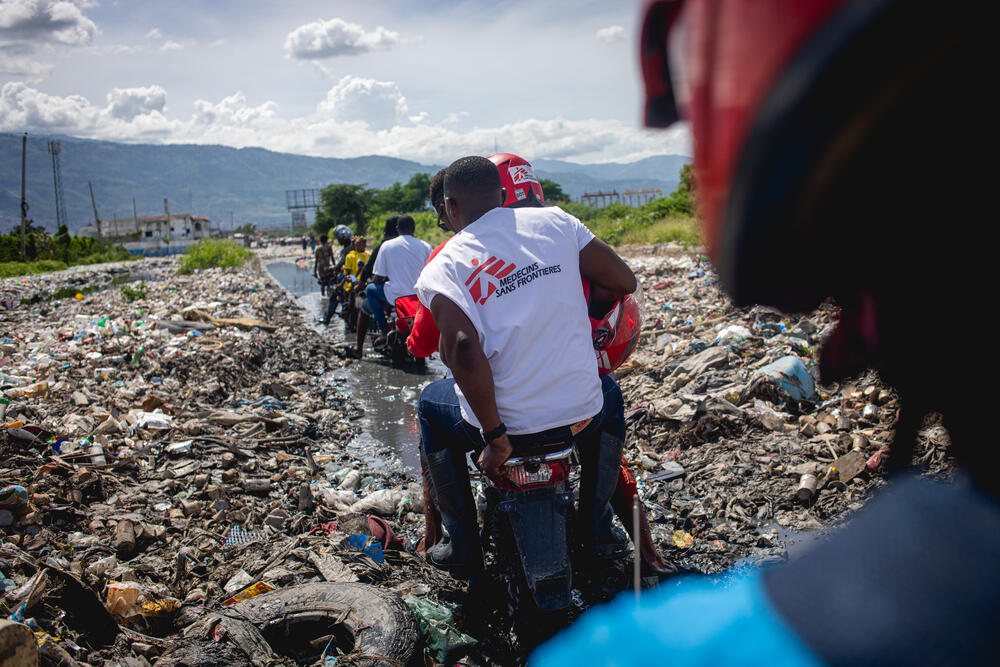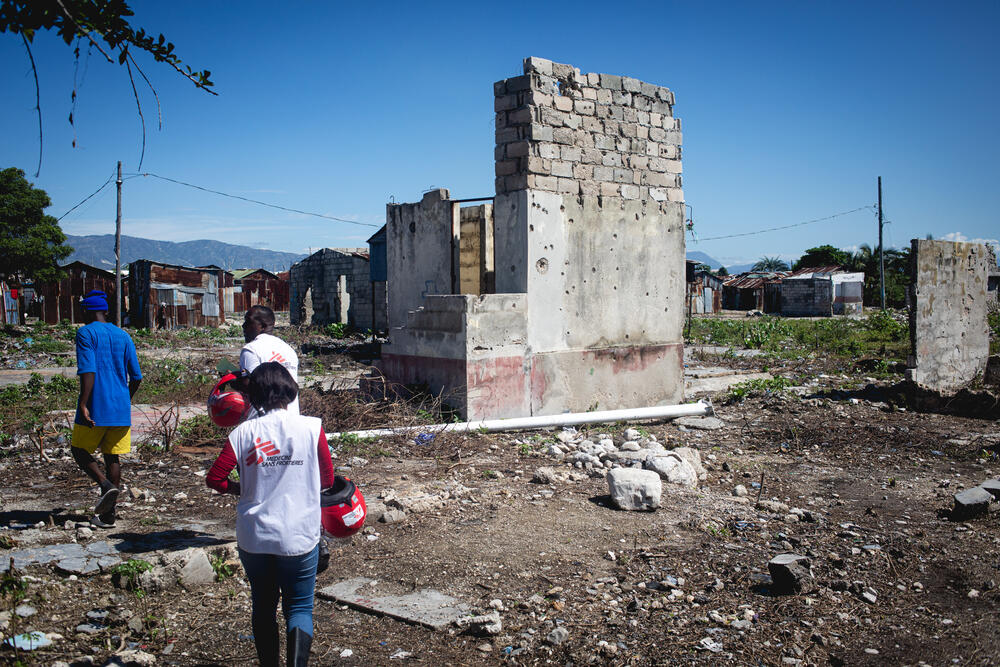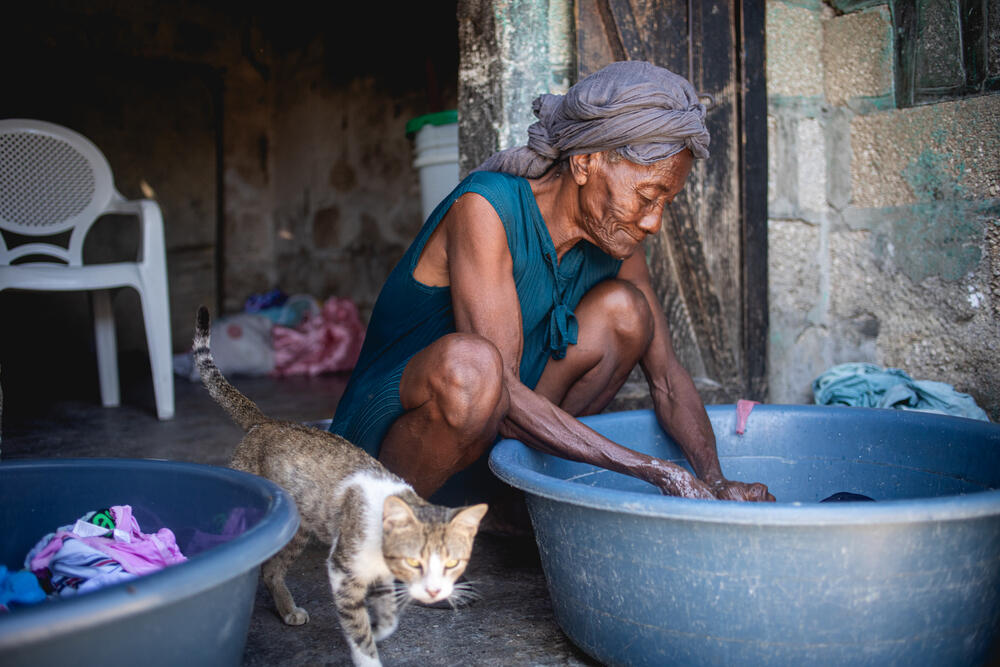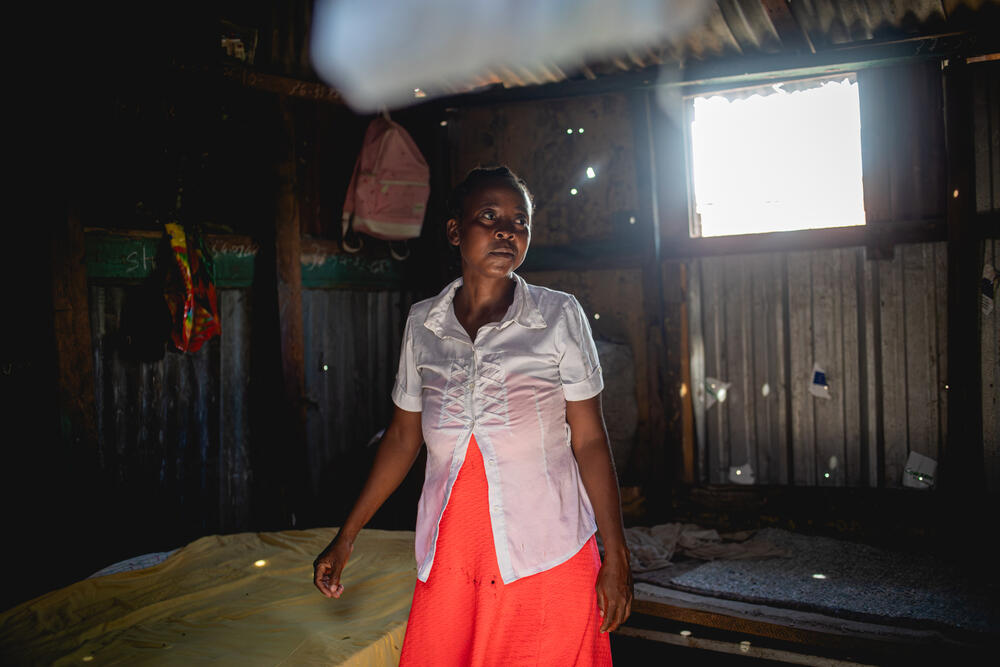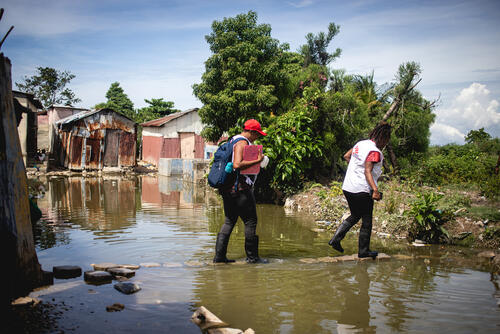Haiti: Women trapped between violence and poverty in Port-au-Prince
11 February 2025
Géralda, Alcélia, and Cherlyne, three Haitian women, share their struggle to survive in Brooklyn, an isolated part of Cité Soleil neighbourhood in Port-au-Prince. Médecins Sans Frontières (MSF) teams are the only ones providing free medical care in the area on a daily basis.
Cité Soleil: Life under constant threat of crossfire
Géralda describes how she lives trapped in Brooklyn, an area of Cité Soleil. Cité Soleil is an enclave controlled by armed groups, home to 300,000 people who have been cut off from humanitarian support for years.
"Before, I could sell a few things to support myself," says the mother of six. "But since the violence began, I barely leave the house anymore. I had to give up my business and now I have nothing left. I sent my children to their grandparents because I could no longer take care of them and I stayed here alone with my six-month-old baby."
Since 2022, Cité Soleil has been torn apart by clashes between rival armed groups. Brooklyn, controlled by one of these groups for years, has long been trapped in the midst of the fighting. Its residents live under constant threat from crossfire, unable to move freely without risking their lives. While the fighting subsided in February 2024 and some barricades were lifted, the area remains ravaged by extreme violence. Daily life is marked by murders, assaults, kidnappings, sexual violence, movement restrictions and widespread destruction, all of which severely limit people’s access to clean water, food and healthcare.
Women on the frontlines
"Women suffer even more here: we fear leaving our homes, trapped in a daily cycle of pain and fear," Géralda says. In 2024, MSF teams provided care for 4,463 victims of sexual violence in Port-au-Prince.
Since July 2022, MSF has been the only humanitarian organization providing daily support in Brooklyn. The MSF teams support the Sainte-Marie health centre, which was initially focused on general consultations and now also refers survivors of sexual violence to MSF's Cité Soleil hospital. In 2024, over 11,000 consultations were conducted, including 2,700 for children under five.
In Haiti, more than half of the population survives on less than $3.74 a day, making private healthcare unattainable and leaving MSF as their only lifeline. In the capital, escalating violence—marked by frequent attacks and hospital looting—has pushed the healthcare system to the brink of collapse. Port-au-Prince now has only one functioning public hospital, struggling with severe shortages of blood, oxygen, beds and surgical capacity.
Communities at risk of health catastrophe
"Sometimes there’s no clean water, we drink salty water which causes itching and health problems," says Géralda.
Since 2004, escalating insecurity has led to the gradual withdrawal of public services from Cité Soleil, leaving residents without access to clean water and sanitation. With no proper health infrastructure, they are forced to drink unsafe water and relieve themselves in the open.
“We have no other choice," says Alcélia, a mother of five, who lives in a tin shack in Brooklyn with 10 others.
Heavy rains flood the area, worsening the spread of cholera, skin diseases and urinary tract infections caused by contaminated water. "The water gives us spots on our skin, and my baby often gets sick," says Cherlyne, a single mother of five, forced to beg for food for her children.
The upcoming rainy season, expected to begin in May, threatens to further deteriorate conditions. Overflowing sanitation systems could worsen public health risks, while access to Brooklyn—linked to the capital by a single road clogged with waste and stagnant water—may become even more difficult.
"Imagine a community with no functioning hospitals,” says Odans El Mondo, an MSF physician working in Brooklyn’s only health centre. “When violence erupts, we are forced to turn into an emergency room, even though we are just a health centre meant for consultations. The needs are overwhelming, and the people here have nowhere else to turn."
